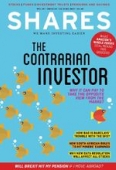Archived article
Please note that tax, investment, pension and ISA rules can change and the information and any views contained in this article may now be inaccurate.
Is this the last hurrah for private equity?

The private equity sector is awash with cash as funds offload holdings in investee companies and investors enthusiastically put up new money in the hope of getting exposure to the next big thing. That suggests to me that we are in the final bull phase for private equity.
You can’t move for headlines about funds selling stakes in business via IPOs (initial public offerings) or raising billions of dollars to make new investments.
For example, CVC Capital last month set a new European fundraising record after attracting €16bn from investors wanting to put money into leveraged buyouts. In plain English, that means buying a controlling stake in a company using a large amount of borrowed money.
Private equity firms often like to pay for acquisitions using as much debt as possible. Their ultimate goal is to buy a company which generates more free cash flow than the cost of debt; thereby they use that cash stream to repay the money borrowed to make the acquisition.
US private equity firm KKR recently raised $9.3bn for an Asian-focused fund; Goldman Sachs raised $7bn last week for its new private equity fund. Eclipsing both of those events is the $93bn raised by Japan’s SoftBank to back tech firms.
Why are investors eager to back the sector?
Put simply, the returns have been good. For example, on the UK market Pantheon International (PIN) has delivered 58% total return in the past three years; and Electra Private Equity (ELTA) has 107% total return over the same period, according to SharePad.
In contrast, the FTSE 100’s total return over those three years is 23.6%; and 25.9% from the FTSE All-Share.
Richard Hickman, director of investment and operations at HarbourVest, says it has been a seller’s market for private equity assets over the past few years.
HarbourVest Global Private Equity (HVPE), which has delivered an 89% total return over the past three years, reported a ‘substantial’ pace of realisations for the 12 months to 31 January 2017 – namely a string of disposals.
Electra Private Equity has also been exiting a lot of its investments, either via trade sales or floating businesses as a way of selling down its holdings – such as seen with Hollywood Bowl (BOWL) on the UK stock market.
Price to pay for success
The downside of the sector having so much cash is that new investments are more expensive, as competition for new opportunities is driving up the price.
That could dampen future return on investment, suggesting the next cycle for the private equity industry may not be as lucrative as the current one. Time will tell.
For now, Hickman at HarbourVest argues that currently paying a 12-times earnings multiple is not excessive if it means buying a good business that could act as an industry consolidator, subsequently snapping up rivals on a six-times multiple.
As for the listed private equity funds, there is no denying they are quite ‘expensive’ in relative terms. All eight investment trusts which are private equity fund of funds are trading at a significantly lower discount to net asset value than their 12-month average, according to data from Winterflood.
I certainly see merit in having private equity exposure as part of a diversified portfolio. Just don’t expect future performance to maintain its superior upwards trajectory for years to come. The sector is vulnerable to pullbacks, just like the rest
of the market.
Important information:
These articles are provided by Shares magazine which is published by AJ Bell Media, a part of AJ Bell. Shares is not written by AJ Bell.
Shares is provided for your general information and use and is not a personal recommendation to invest. It is not intended to be relied upon by you in making or not making any investment decisions. The investments referred to in these articles will not be suitable for all investors. If in doubt please seek appropriate independent financial advice.
Investors acting on the information in these articles do so at their own risk and AJ Bell Media and its staff do not accept liability for losses suffered by investors as a result of their investment decisions.

 magazine
magazine








